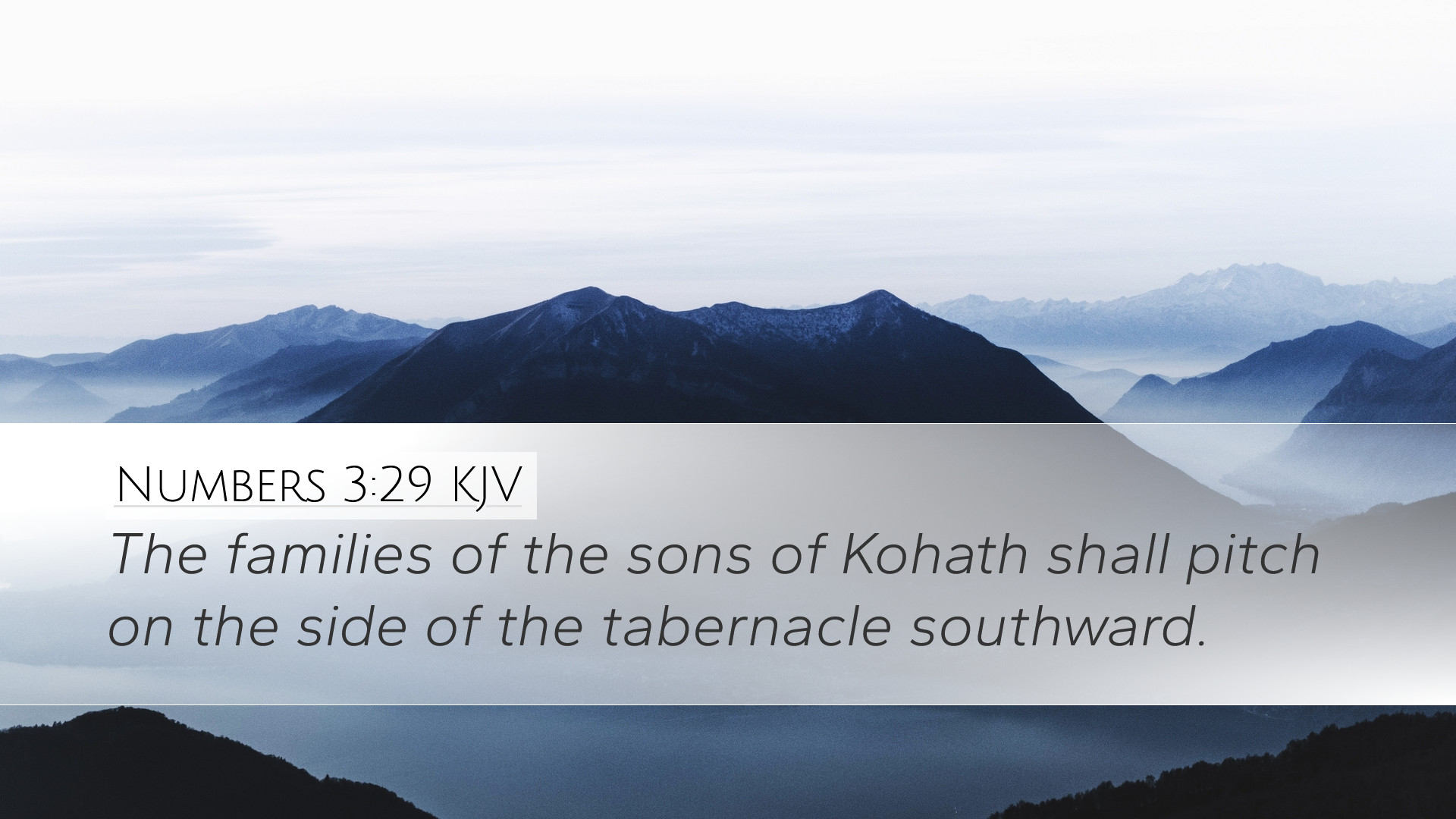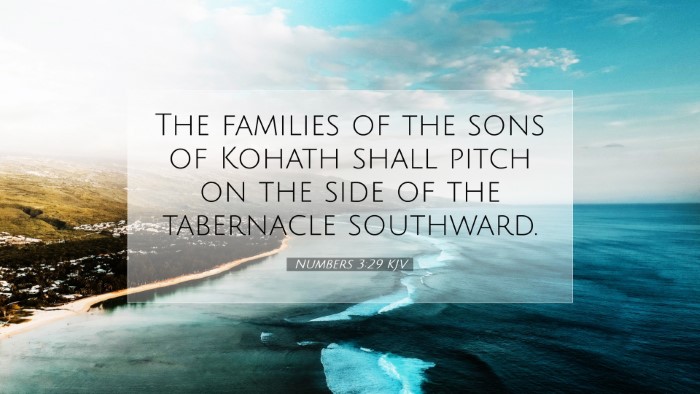Commentary on Numbers 3:29
Numbers 3:29 states, "The families of the descendants of Kohath were to camp on the south side of the tabernacle." This verse provides insight into the organization and responsibilities assigned to the Levites, specifically the Kohathites, in relation to the Tabernacle. The systematic arrangement of the tribes reflects the holiness of the Tabernacle and the order of service required by God.
Contextual Overview
The book of Numbers focuses on the census and organization of the Israelites as they journey through the wilderness. As they camp around the Tabernacle, God provides detailed instructions regarding the roles of the different families. Each tribe and clan is assigned specific duties which contribute to the worship and service of God.
Kohathites: The Duties and Responsibilities
The Kohathites, one of the three primary clans of the Levites, were charged with the sacred duty of caring for the most holy items within the Tabernacle. Their responsibilities included:
- The Ark of the Covenant: The most significant piece of furniture that represented God's presence among His people.
- The Table of Showbread: Symbolizing God’s provision.
- The Candlestick: Representing light and divine guidance.
As Matthew Henry remarks, "The Kohathites represented the reverent care that is necessary in handling sacred things."
Significance of Camp Location
Camping on the south side had both spiritual and practical implications:
- Proximity to the Tabernacle: The Kohathites' closeness to the sacred space underscores their crucial role in the ministry of the Tabernacle.
- Symbolic representation of service: Their southward location, often associated with warmth and brightness, portrays the joy and responsibility of serving God’s presence.
Theological Implications
This arrangement also has broader implications for theology and worship:
- Divine Order: It emphasizes God's desire for order in worship, where every role and every person has a place within His plan.
- Covenantal Relationship: The position of the Kohathites reflects the covenantal bond between God and His people; their duties are a response to God’s grace.
- The Sacredness of Service: The high call to serve in sacred capacities reminds believers today of the importance of reverence in spiritual matters.
Reflections from Commentators
Albert Barnes' Perspective
Albert Barnes notes that the Kohathites were particularly favored by God due to their service. He emphasizes that their duties taught them of God’s requirements and holiness. He stresses, "Such distinct orders in service point to the holiness of God's house and the importance of obedience."
Adam Clarke's Insights
Adam Clarke, in his extensive studies, highlights that the location of each tribe was meticulously planned by divine direction. Clarke comments that "Not only the act of ministry but the appropriate location of each clan denotes the propriety and order that must characterize worship." He urges readers to see the relevance of structure in today's church services.
Practical Applications
The lessons drawn from Numbers 3:29 include:
- Understanding Service: Each believer has a unique role in the body of Christ. Like the Kohathites, we are called to serve with reverence and dedication.
- The Importance of Order: The church today must adhere to divine order in its worship and organizational structure to honor God's presence.
- Covenantal Privilege: Recognizing our privileges as part of God's covenant should inspire gratitude and responsibility in our service.
Conclusion
Numbers 3:29 is not merely a historical account but a rich tapestry of theological, practical, and organizational truths. It calls contemporary believers to a deeper understanding of their role in the community of faith, the divine order of worship, and the serious, sacred nature of serving God. As pastors, students, theologians, and scholars reflect on this verse, they should be encouraged to strive for this divine order and holiness in their own practices and teachings.


